Data
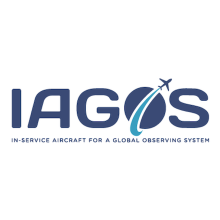
IAGOS: Atmospheric composition during COVID-19 crisis
The In-service Aircraft for a Global Observing System (IAGOS) uses a fleet of longhaul commercial passenger aircraft to obtain measurements of global atmospheric composition. IAGOS has been severely impacted by the dramatic reduction in air travel throughout this COVID crisis and this has had an impact on data provision to our users. However, some aircraft did operate and have delivered vertical profiles of air quality and atmospheric composition from the surface to the upper troposphere, allowing us to glean important information about the state of the atmosphere during the COVID crisis. Data are open access and available through the website, upon completion of the data protocol.

ODISSEI: Research on COVID-19 social impact
The Open Data Infrastructure for Social Science and Economic Innovations Dutch (ODISSEI) brings together researchers with the necessary data, expertise and resources to conduct ground-breaking research and embrace the computational turn in social enquiry. In response to the COVID-19 pandemic, ODISSEI has granted two data proposals, by awarding time on the LISS data panel for corona-related research into home-schooling (Dr. Thijs Bol, University of Amsterdam) and the distribution of care responsibilities (Dr. Mara A. Yerkes, Utrecht University).

ELIXIR-CZ: Life science data services
The Czech National Infrastructure for Biological Data (ELIXIR-CZ) provides a research infrastructure for the storage, processing and analysing data in the field of life sciences. ELIXIR-CZ has launched a website dedicated to COVID-19, where experts and the general public can find information on activities related to the fight against COVID-19. The website provides recommendations for data storage and sharing and the information on access to relevant data. ELIXIR-CZ specifically provides assistance in setting up the FAIR data principles, special software and analytics tools, and computing resources to help analyse data sets.
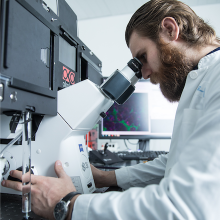
Euro-BioImaging: Open access to services
Biological and biomedical imaging technologies are essential for addressing many of the research questions related to Covid-19, from fundamental research at the molecular and cellular level to medical applications and diagnostics. Euro-BioImaging ERIC provides open access to imaging technologies, training and data services at its 21 Nodes, listed in a dedicated web page along with other related resources.
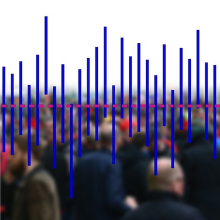
CESSDA: Social research data and analysis tools
The Consortium of European Social Science Data Archives (CESSDA) is a distributed social data research infrastructure providing a European Data Catalogue, data facilities at national Service Providers to archive, curate and access research data, and tools for experts: Controlled Vocabularies Manager, European Multilingual Thesaurus, European Question Bank. COVID-related topics in social data include social behaviour, work, health, travel, social norms & values, attitudes toward government measures, vaccination, etc.

CERN Against COVID-19 initiative
The objective of the CERN against COVID-19 initiative is to ensure effective and well-coordinated action, drawing on CERN’s many competencies and advanced technologies and working closely with experts in healthcare, drug development, epidemiology and emergency response so as to maximise the impact of CERN contributions. CERN is focusing these efforts in three action areas:
- Medical applications: design and production of medical supplies and equipment, ranging from producing sanitiser gel, to developing full-scale ventilators for use in hospitals.
- Computing and data analysis: the vast global computing resource, Worldwide LHC Computing Grid, (WLCG), and CERN openlab collaboration can provide considerable resources for fighting the pandemic.
- Help to society: emergency response teams available to support local ambulance services, donations of PPE, production of Perspex barriers to protect those working in public services.
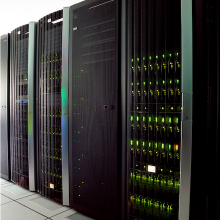
LAPP: MUST data centre computational and storage capacities
The Particle Physics Laboratory of Annecy (LAPP), a joint research unit of CNRS and Savoie Mont-Blanc University, provides all the possible computational and storage support to the CNRS biologists with its MUST data centre, to contribute in the battle against the COVID-19 pandemic. Exceptionally, LAPP will offer special access to its MUST data centre for important insights into the behaviour of the virus. The computing power of MUST will be used for in-silico screening to select from a database of several million molecules, those that meet very precise specifications and that could attack some major COVID-19 enzymes responsible for the replication of the virus RNA in the human host cell.
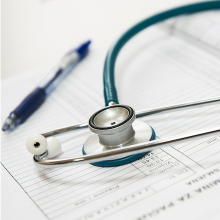
ECRIN: Fast-track access to clinical study support
The European Clinical Research Infrastructure (ECRIN) provides support to the planning and design of multinational clinical studies, and operational services to the management of the trial. In the COVID-19 context, ECRIN develops a fast-track procedure for access to, and provision of services. After supporting investigators and sponsors in designing and planning the trial (including on the regulatory and ethical context), ECRIN provides operational support to the sponsors for the management of the multinational trial, including ethical, regulatory and data protection approvals, vigilance, data monitoring anddata management services (through ECRIN-certified data centres).
As part of the Alliance of Medical Infrastructures with BBMRI and EATRIS, ECRIN also offers a Fast Response Service for researchers.
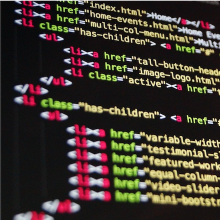
LIFEWATCH: Epidemiology and data support
In response to the COVID-19 pandemic, LIFEWATCH ERIC has planned an initiative where a group of international scientists with long-track experience in machine learning and modeling, which will join efforts to:
- Implement a large set of scenario and model simulations to establish alternative trajectories of spread for SARS-CoV-2
- Perform an extensive sensitivity analysis to understand the major sources of uncertainty associated with model projections
- Develop an on-line decision support system platform enabling individuals and stakeholders in the public and private sectors to query about risks in specific locations and time periods
- Support the federation, provenance and accountability mechanisms associated to distributed (e-)Resources (databases, publications, media, software, etc.) through Blockchain-based technologies.
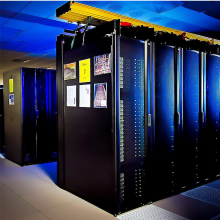
CRESCO6: Free access to high-performance computers
The Italian National Agency for New Technologies, Energy and Sustainable Economic Development (ENEA), in order to contribute to research on COVID-19, makes its high-performance computing infrastructure HPC CRESCO6 available - free-of-charge access - to the entire scientific community involved in research activities and application projects for the coronavirus emergency.
